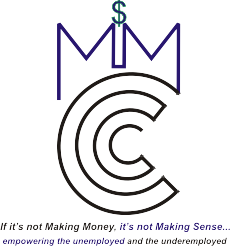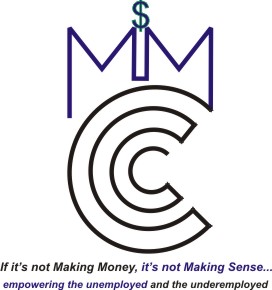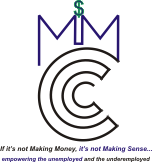The financial health of a small business hinges on effective budgeting and financial management. In the digital age, budgeting apps have become indispensable tools for businesses to track and manage their finances efficiently. This article explores 11 top budgeting apps tailored for small businesses, discussing their key features, benefits, and suitability.
Top 11 Budgeting Apps for Small Businesses
Mint
Mint is a popular budgeting tool known for its user-friendly interface and comprehensive financial tracking capabilities. It allows small businesses to monitor transactions, categorize expenses, and create custom budgets. The app’s real-time updates and financial insights make it a valuable asset for small businesses looking to maintain tight control over their finances.
FreshBooks
FreshBooks stands out with its robust invoicing and accounting features. Designed for small businesses and freelancers, it offers time tracking, expense management, and invoicing tools. Its ease of use and excellent customer support make FreshBooks an ideal choice for businesses seeking an all-in-one financial management solution.
Simplifi by Quicken
Simplifi by Quicken offers a personalized financial management experience. It provides features like cash flow tracking, subscription management, and customizable budgets. Its focus on financial planning and forecasting makes it a suitable option for small businesses aiming for long-term financial stability.
Mvelopes
Mvelopes adopts the envelope budgeting method, allowing businesses to allocate funds into different spending categories. This app helps in preventing overspending and provides a clear view of financial commitments and available funds, making it a practical tool for businesses with tight budget constraints.
InDinero
InDinero provides a comprehensive suite of financial tools, including accounting, tax compliance, and financial reporting. It’s designed to grow with your business, offering scalability and insights that are invaluable for business decision-making.
Goodbudget
Goodbudget is another app based on the envelope budgeting system. It’s geared towards simplicity and collaboration, allowing multiple users to track and manage the business’s budget. This makes it ideal for businesses with several stakeholders involved in financial planning.
Toshl
Toshl Finance is known for its intuitive interface and powerful budgeting tools. It integrates with numerous bank accounts and financial services, providing a unified view of your finances. Its emphasis on data visualization aids small businesses in understanding their financial landscape at a glance.
Personal Capital
Personal Capital offers a unique blend of budgeting and investment tracking tools. While it’s more focused on personal finance, its comprehensive asset tracking and retirement planning features can be beneficial for small business owners looking to manage both personal and business finances in one place.
PlanGuru
PlanGuru is tailored for businesses seeking advanced budgeting and forecasting capabilities. It offers detailed financial analytics, budgeting, and projection tools, making it suitable for businesses with complex financial planning needs.
Wally
Wally is a straightforward budgeting app with a focus on expense tracking and categorization. Its simplicity and ease of use make it a great choice for small businesses that need basic budget management without the complexity of more advanced tools.
Honeydew
Honeydew is unique in its focus on collaborative budgeting. It allows multiple users to track and manage a shared budget, making it suitable for businesses that operate with a team-based approach to financial management.
Comparative Analysis
Each of these budgeting apps has its unique strengths and caters to different business needs. While Mint offers comprehensive financial tracking, FreshBooks excels in invoicing and accounting. Simplifi by Quicken and Mvelopes are great for detailed financial planning, whereas InDinero and PlanGuru are ideal for businesses looking for an all-in-one financial management tool.
User Reviews and Feedback
User reviews highlight the practicality and usability of these apps. Positive feedback often centers around ease of use, comprehensive features, and reliable customer support. Prospective users are advised to consider these reviews alongside their specific business needs when choosing an app.
Conclusion
Choosing the right budgeting app for a small business depends on the specific financial management needs of the business. From comprehensive financial tracking to simple budget management, each app offers unique features that can aid in effective financial planning and management.
Budgeting Apps for Small Businesses – FAQs
1. What makes a budgeting app suitable for small businesses?
A budgeting app is suitable for small businesses if it offers features like expense tracking, financial reporting, budget creation and management, and integration with banking and accounting software. The app should be user-friendly, scalable to accommodate business growth, and offer secure data handling. The ability to collaborate and share financial information among team members can also be a valuable feature.
2. How do budgeting apps help in financial planning?
Budgeting apps aid in financial planning by providing real-time visibility into a business’s financial health. They help track income and expenses, categorize transactions, and forecast future cash flows. This allows businesses to make informed decisions about spending, investments, and cost-cutting measures. Budgeting apps also often offer analytical tools to understand financial trends and patterns.
3. Are there budgeting apps that integrate with banking services?
Yes, many budgeting apps offer integration with banking services. This allows for automatic transaction updates and a consolidated view of all financial accounts in one place. This integration simplifies the process of tracking income and expenses and ensures that financial data is up-to-date and accurate.
4. Can budgeting apps help with tax compliance?
While budgeting apps primarily focus on tracking income and expenses, many offer features that aid in tax compliance. This can include categorizing transactions in tax-relevant ways, tracking deductible expenses, and generating reports that can be used for tax filing purposes. However, it’s advisable to consult with a tax professional for comprehensive tax planning and compliance.
5. What are the key features to look for in a budgeting app?
Key features to look for in a budgeting app include expense tracking, budget creation and management, financial reporting, integration with banking and accounting software, multi-user access for team collaboration, data security, and mobile access for on-the-go financial management.
6. How important are user reviews in selecting a budgeting app?
User reviews are very important in selecting a budgeting app. They provide insights into the app’s usability, reliability, customer service quality, and real-world performance. Reviews can highlight strengths and weaknesses from a user perspective, helping potential users make informed decisions based on the experiences of others.
7. Can budgeting apps handle multiple currencies and international transactions?
Many budgeting apps are equipped to handle multiple currencies and international transactions. This is particularly important for businesses that operate globally or deal with international clients and vendors. Such functionality enables accurate tracking of financial activities across different currencies and simplifies the complexities associated with foreign transactions.





